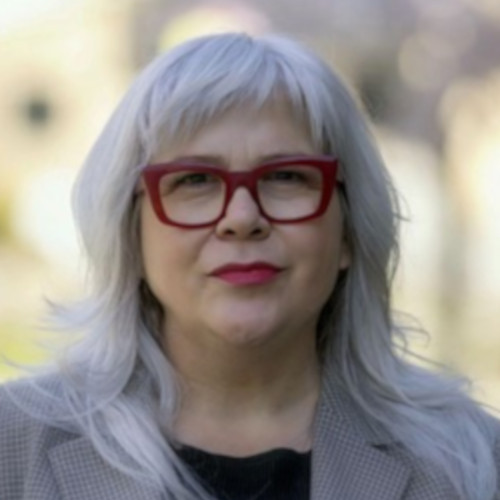
(This article has been translated into French.)
A few years ago, our research team started work on a platform that offers innovative pathways to bring social sciences and humanities
researchers’ expertise – from philosophy and sociology to psychology, history, anthropology, cultural studies and beyond – where it is needed in the community. This project has been one way to reflect on a range of questions that go to the heart of the work universities do. One question, in particular, has kept resurfacing. What are the skills that make a social science and humanities (SSH) education valuable?
Outside the academic “ivory tower,” SSH tend to suffer from perceptions and value judgments that are often prejudicial and inaccurate, like calling a humanities degree a “barista degree” or assuming that the research is “really just common sense.”
In a report last year, the University of Toronto’s Jonathan Turner and I discussed how to leverage SSH talent, and how universities can support its development meaningfully. A number of recent reports and news articles cite prominent industry leaders who associate the future of a strong and resilient workforce with the social sciences and humanities (and sometimes arts) degrees precisely because they see valuable skills as their focus. Our new report, “Foundational Skills and What Social Sciences and Humanities Need to Know,” seeks to gauge employers’ skills needs to understand how SSH departments are positioned to meet them.
The report should be of interest to a broad range of people beyond those in industry who are worried about hiring a real-world ready workforce. It was designed also for deans, and department and committee chairs who make decisions about curriculum and programming in universities. Those who are in senior leadership positions and whose role it is to support student success and meaningful learning must also take note, as should government agencies responsible for supporting the development of emerging talent under increasingly complex conditions.
The report starts by drawing a picture of employers’ claims about what skills are needed and focuses on the claims about “foundational skills” specifically. These are the “soft,” “social,” “human,” “transferable” and/or “global” competencies that are increasingly associated with a social sciences and humanities education. We wanted to develop an analytical framework that could be expanded and used to help articulate the value of foundational skills in the context of employment. This is particularly relevant with increasingly frequent workforce disruptions. It allows employers to think about the concrete skills their employees need for their organization’s success. The framework also gives graduates tools to explain how the skills acquired through their education can be used and applied in various contexts.
Then, we set out to examine how Canadian universities promote social sciences and humanities programs to prospective students. We gauged the disconnect between employers’ needs and social sciences and humanities’ self-perceived ability to meet them. Predictably, SSH generally consider that it falls within their purview to help build the skills employers identify as central to innovation and adaptability, for instance. This includes critical thinking, effective problem-solving, creativity and analytical skills.
However, we were surprised to discover that the skills associated with social, emotional and ethical intelligence such as judgment, integrity, teamwork, self-management and intercultural awareness were almost completely overlooked, as if SSH degrees did not cultivate those skill sets.
One reason for this disconnect may be the gaps in our understanding of what the industry actually needs (as opposed to what they say they need, which is not based on data and evidence, and uses analyses that are often unreliable), and the nature and value of foundational skills and how they can be fostered. This represents a problem.
In order to make responsible and informed decisions, stakeholders across the board need to be equipped with the evidence and adequate conceptual tools to reflect on these questions. That is part of the reason why we need more research on all aspects of these issues.
But knowledge gaps are not the only factor when it comes to the disconnect between employers’ perceptions of their skills needs and social sciences and humanities’ apparent lack of readiness to fulfil these needs.
One obstacle might be cultural. Social scientists and humanists are understandably wary of being perceived to be the means of corporate gain. Another obstacle might have to do with what faculty members see as the role of academia, and they are right to exercise caution when it comes to making decisions about their programs that might affect their capacity to fulfil their mission. But this does not mean that SSH faculty should in principle be opposed to helping students hone and perfect foundational skills.
Just like SSH research, SSH graduates often end up shaping the public and not-for-profit sectors. They will find employment as civil servants, not-for-profit managers, judges and policy-makers. We must expect that whatever the positions in which SSH graduates land, foundational skills will be an ingredient of organizational efficiency. In order for economic, social, legal and political institutions to create and further the conditions of a fair and inclusive society, it is necessary to secure the participation of individuals who have the competencies for the relevant roles. This is directly relevant to SSH’s mission.
With this in mind, it is important to emphasize the importance of so-called “collaborative skills” that overlap substantially with those we use to describe social, emotional and ethical intelligence. They include teamwork, effective communication, self-management and intercultural awareness. Employers need employees who have these skills whether they operate in the private, public, or not-for-profit sector. Graduate students and researchers in social sciences and humanities also use these skills. Collaborative skills, however, are effectively amongst the hardest to foster meaningfully, and their development needs to be supported in ways that complement individual supervision.
The misalignment between SSH’s understanding of what employers need and what employers say they need raises a number of questions. Many of them point to missed opportunities to take control of the narrative around talent and re-affirm the academic mission, while at the same time securing the support of unexpected allies.
Photo: Shutterstock.com, by Gorgev.








